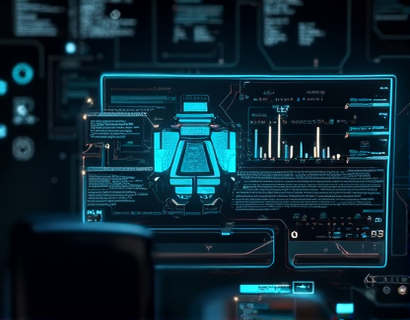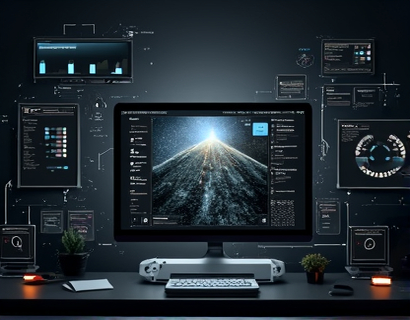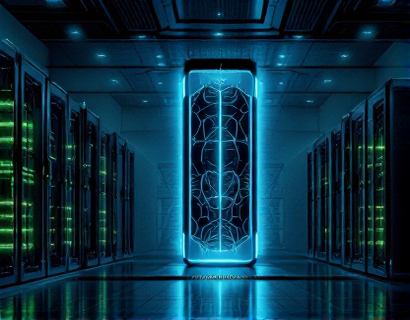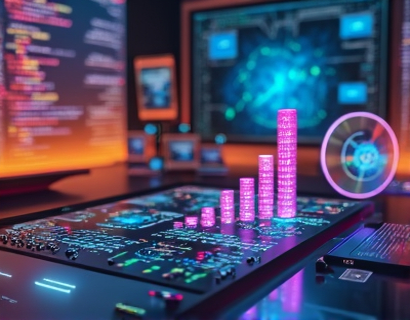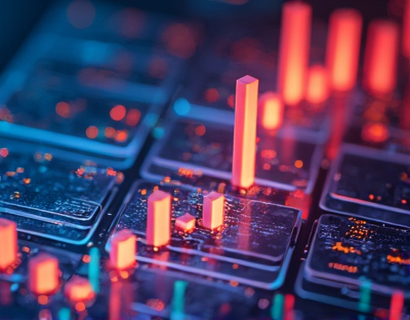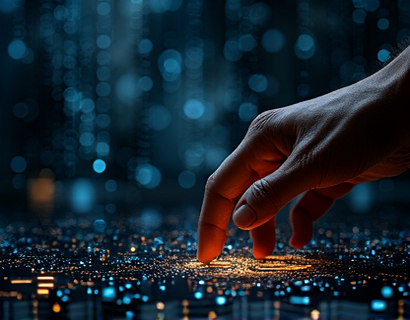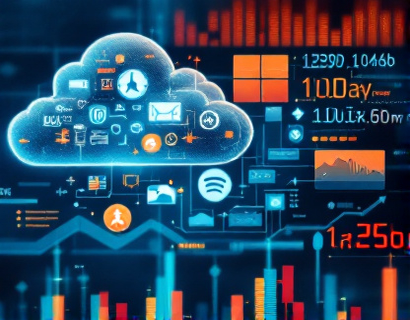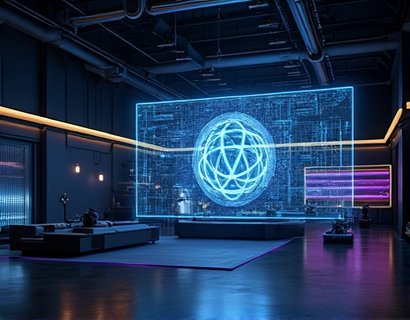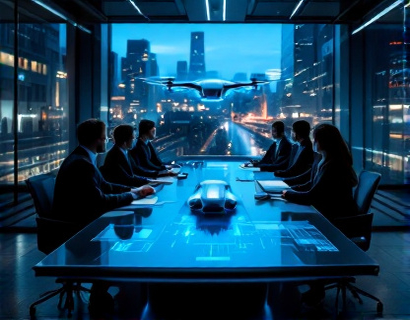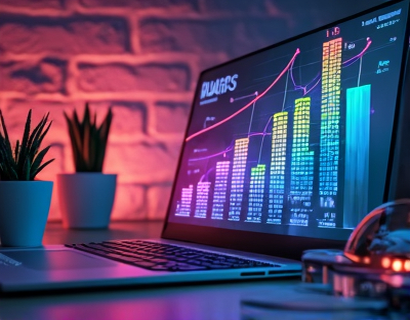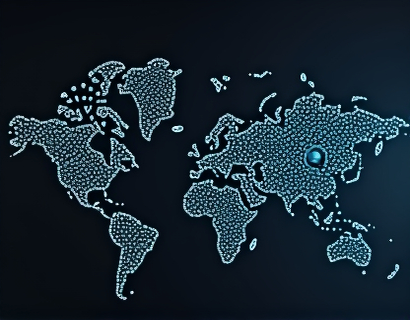Decentralized AI and Crypto: Empowering the Future of Ucosystem Applications
The intersection of decentralized technologies, artificial intelligence, and cryptocurrency is giving rise to a new era of digital applications. This convergence is not just a technological advancement but a paradigm shift in how we interact with digital services. The fusion of these elements is creating what is known as Ucosystem applications, which promise to enhance user engagement and redefine digital interactions. This article delves into the intricacies of this merging landscape, exploring how decentralized AI and crypto are empowering the next wave of applications.
Understanding Decentralized AI
Decentralized AI refers to artificial intelligence systems that operate on a decentralized network, typically a blockchain. Unlike traditional AI, which relies on centralized servers for data processing and model training, decentralized AI distributes these tasks across a network of nodes. This approach offers several advantages, including enhanced security, privacy, and resilience against single points of failure.
The decentralized nature of AI means that data is not stored in a single location, reducing the risk of data breaches and unauthorized access. Each node in the network contributes to the AI's learning process, making the system more robust and less vulnerable to attacks. This distributed approach also ensures that the AI model remains transparent and auditable, as all participants can verify the model's behavior and integrity.
Crypto's Role in Decentralized AI
Cryptocurrency plays a pivotal role in the ecosystem of decentralized AI. Cryptocurrencies provide a medium of exchange that is secure, transparent, and decentralized, making them ideal for transactions within a decentralized network. Smart contracts, which are self-executing contracts with the terms directly written into code, facilitate automated and trustless interactions between parties. In the context of decentralized AI, smart contracts can automate the distribution of rewards, data sharing, and model updates, ensuring that all participants are fairly compensated and incentivized.
Moreover, cryptocurrencies enable microtransactions, allowing for granular and precise compensation for data contributors and model users. This is particularly important in AI systems where data quality and relevance are crucial. By using cryptocurrency, the system can reward users based on the value they provide, fostering a collaborative and dynamic environment.
Ucosystem Applications: A New Paradigm
Ucosystem applications are the culmination of decentralized AI and cryptocurrency, creating a new class of digital services that are more engaging, secure, and user-centric. These applications leverage the strengths of decentralized technologies to offer innovative features and experiences that traditional centralized applications cannot match.
One of the key features of Ucosystem applications is their ability to create decentralized marketplaces. These marketplaces allow users to buy, sell, and trade various digital assets, including AI models, data sets, and computational resources. The decentralized nature ensures that these transactions are transparent, secure, and free from intermediaries, reducing costs and increasing efficiency.
Another significant aspect is the enhancement of user engagement through decentralized governance. Ucosystem applications often implement decentralized autonomous organizations (DAOs) to manage and govern the application. DAOs allow token holders to propose and vote on changes, ensuring that the application evolves in line with the community's needs and preferences. This democratic approach fosters a sense of ownership and loyalty among users, driving higher engagement and retention.
Enhancing User Experience with AI
AI technologies, when integrated into Ucosystem applications, can significantly enhance the user experience. Personalization is a prime example, where AI algorithms analyze user behavior and preferences to provide tailored content and recommendations. This level of personalization is more effective in a decentralized setup, as the AI model is trained on a diverse and distributed dataset, reducing the risk of bias and improving accuracy.
Chatbots and virtual assistants powered by decentralized AI can offer 24/7 support, understanding and responding to user queries in real-time. These AI-driven assistants can operate across multiple platforms and languages, providing a seamless and consistent user experience. The transparency of decentralized AI ensures that users can trust the decisions made by these assistants, as the reasoning behind each response is traceable and verifiable.
Security and Privacy in Ucosystem Applications
Security and privacy are paramount in the realm of decentralized AI and cryptocurrency. The decentralized architecture inherently provides a higher level of security, as there is no single point of failure that can be exploited. Additionally, the use of cryptographic techniques ensures that data is encrypted and secure during transmission and storage.
Privacy is another area where decentralized AI shines. Traditional AI systems often require centralized data storage, which can be a target for privacy breaches. In contrast, decentralized AI processes data locally on users' devices or within a distributed network, minimizing the exposure of sensitive information. Users maintain control over their data, deciding what to share and with whom, enhancing their privacy and trust in the application.
Challenges and Considerations
While the potential of decentralized AI and Ucosystem applications is vast, there are several challenges and considerations that need to be addressed. Scalability is a significant issue, as decentralized networks can be slower and less efficient compared to centralized systems. However, ongoing research and development in blockchain technology, such as layer 2 solutions and more efficient consensus mechanisms, are addressing these challenges.
Interoperability is another critical aspect. For Ucosystem applications to thrive, different decentralized systems need to work together seamlessly. Standardization and the development of interoperability protocols are essential to ensure that applications can communicate and exchange data effectively.
Regulatory compliance is also a consideration, as the use of cryptocurrency and decentralized technologies is subject to varying legal frameworks across different regions. Developers and operators of Ucosystem applications must navigate these regulations to ensure compliance and avoid legal issues.
Future Prospects
The future of Ucosystem applications looks promising, with continuous advancements in decentralized AI and cryptocurrency technologies. As more developers and organizations adopt these technologies, we can expect to see more innovative and sophisticated applications. The integration of edge computing, quantum AI, and advanced cryptographic techniques will further enhance the capabilities of Ucosystem applications.
The adoption of Ucosystem applications is likely to grow as users become more aware of the benefits of decentralized technologies. The combination of enhanced security, privacy, and user engagement will drive the adoption across various industries, from finance and healthcare to gaming and social media. As the ecosystem matures, we can anticipate the emergence of new business models and revenue streams that leverage the unique strengths of decentralized AI and cryptocurrency.
In conclusion, the merging of decentralized AI and cryptocurrency is revolutionizing the digital landscape, giving birth to Ucosystem applications that offer unparalleled benefits. By embracing these technologies, we can create a more secure, transparent, and user-centric digital world. The journey ahead is exciting, and the potential for innovation is limitless.



